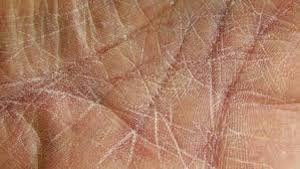 Skin experts would like you to know that when your skin starts to look and feel dry, there are two reasons for it. Firstly, you may have dry skin, which is genetic, or you may (which is far more common) actually be dehydrated.
Skin experts would like you to know that when your skin starts to look and feel dry, there are two reasons for it. Firstly, you may have dry skin, which is genetic, or you may (which is far more common) actually be dehydrated.
Chronic dehydration does not mean feeling a bit thirsty, it is when you are internally really quite dry. The skin is our largest organ and the first to show signs of distress, so dehydration will show here first.
So, before you reach for extra moisturiser, have a drink of water. Experts agree that dehydration takes time to resolve – often several weeks. It is also best to increase your liquid intake by sipping throughout the day, rather than guzzling large quantities at once.
Water at room temperature (or just above) will also absorb most comfortably.
“It may be hard to believe but dehydrated skin is actually far more common than dry skin,” says aesthetician Elena Arboleda. Dehydrated skin lacks water. “This can be the result of not drinking enough water or a variety of external factors like, indoor heating/cooling systems, exposure to the sun or cold temperatures.”
Physical signs of dehydrated skin include tightness, the appearance of smaller pores and a scaly, flaky or rough texture.
Truly dry skin lacks oil. “As we age the lipid barrier decreases, which is why dry skin is much more common in older people,” she says.
Signs that your skin is dry are itchiness, redness or ashiness (if you have a darker complexion).
In terms of beauty products, to improve the condition of dehydrated skin, she suggests products that contain moisture-binding ingredients like hyaluronic acid and collagen. For dry skin, look out for products that contain rich oils and lipids.
“Being properly hydrated is not only essential for your skin, but for every organ in the body,” she says. “The skin also loves healthy fats: salmon, avocado, olive oil — these are all wonderful if you are experiencing dryness or dehydration.”








Join the Discussion
Type out your comment here:
You must be logged in to post a comment.